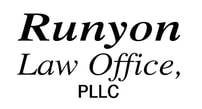Help Most Effectively
Still, I'm talking primarily to those of you who were able to underwrite your kids'/grandkids' school expenses (and have something left), or who may have sold a successful business or accumulated disposable assets from some other source that leaves you in a position to help out where help is needed. Clearly, the most direct way to make a difference is to do your research and find the non-profits that will make most efficient use of their funds for the purposes important to you. You can use Google as well as I can, but
charitywatch.org is one good place to start. OK, I'm circling in on the point now.
Instead of making a direct contribution, however, many people these days use so-called "donor advised funds" as the vehicles for getting their charitable deductions. They set up a DAF with someone like Fidelity or Schwab, get their year-end paperwork for tax return purposes, and promptly lose track of what's actually happening with the assets. The investment firm invests the resources, deducts a nice management fee each year, and may or may not actually make a distribution to a non-profit that's in dire need of those funds to provide its important services - because there's no legal obligation to do so in order for our generous philanthropists to get their full tax deductions. And the investment folks have an understandable disincentive to push the funds out to the service providers, because, let's
face it, distributions reduce their fees.
So, finally, the moral is this: If you want one of these investment firms to produce healthy returns for your offspring's eventual benefit or your own retirement, great. But if you want to help eliminate poverty in the U.S. or around the world, or help come up with a cure for cancer, ALS or Ebola, then find the organization that has those goals in its sights and fire your ammunition right at the target. If the gift horse is already out of the barn and into a DAF, then just make sure your investment firm distributes your resources where they're needed as quickly as possible.
When you see the difference that even modest gifts could make to people who have absolutely nothing or to those poised to conquer a deadly
adversary, it's hard to accept that there are billions languishing in DAF accounts that could help out immeasurably. Even if you're not in a position to be a philanthropist yourself, you can spread the word about where all the resources are bottled up. If enough people understand the situation, it might help get the law changed to ensure that all those funds actually do some good as soon as possible.
One footnote: I owe credit for opening my own eyes on this subject to my good friend Al Cantor, who's become a national spokesman on this topic.
Posted 10/16/2014 Misc.
